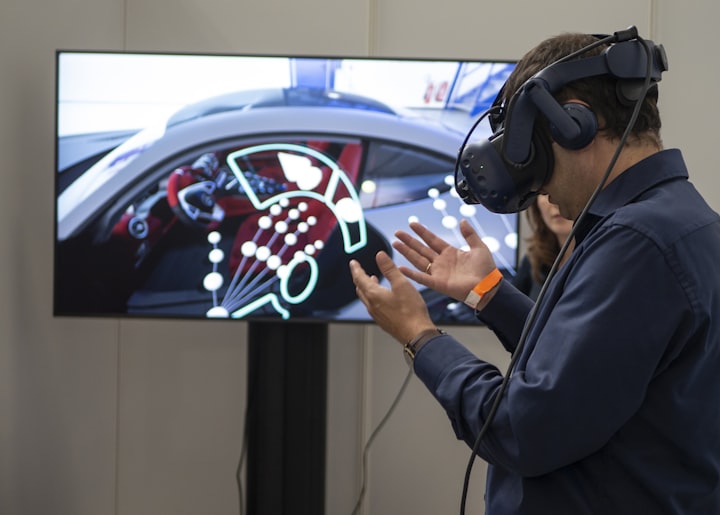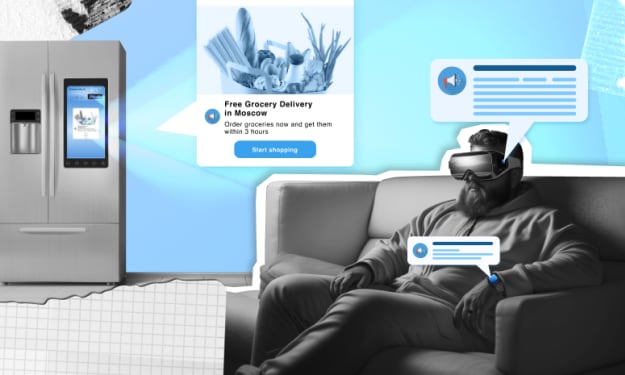Virtual reality (VR) is a rapidly evolving technology that is transforming the way we experience and interact with digital content. With VR, users can enter immersive, computer-generated environments that simulate the sights, sounds, and even the sensations of the real world. This review provides a comprehensive overview of virtual reality, exploring the technology, applications, and implications of this exciting new frontier.
The Technology Behind Virtual Reality:
At its core, virtual reality is a combination of hardware and software that creates a convincing illusion of a three-dimensional, computer-generated environment. To achieve this, VR systems typically include a headset or display that covers the user's eyes, as well as sensors that track the user's movements and adjust the virtual environment in real-time. Some VR systems also include peripherals like hand controllers or haptic feedback devices that provide users with a sense of touch and interaction within the virtual environment.
Applications of Virtual Reality:
Virtual reality has numerous applications across a range of industries and domains. One of the most well-known applications of VR is in the entertainment industry, where it is used to create immersive gaming experiences and virtual theme parks. However, VR is also being used in fields like education, healthcare, architecture, and manufacturing. In education, VR can be used to create immersive learning environments that allow students to explore complex concepts in a hands-on way. In healthcare, VR is being used to treat conditions like anxiety, phobias, and post-traumatic stress disorder (PTSD) by providing patients with exposure therapy in a controlled, virtual environment.
Implications of Virtual Reality:
While virtual reality has tremendous potential, it also raises a number of important ethical, social, and psychological implications. For example, there are concerns about the potential for addiction and overuse of VR, as well as the potential for VR to be used for unethical purposes like propaganda or manipulation. Additionally, VR can raise questions about the nature of reality and the relationship between digital and physical experiences. Understanding and addressing these implications is essential to ensure that VR is used in a responsible and beneficial way.
Challenges and Limitations of Virtual Reality:
Despite its potential, virtual reality still faces a number of challenges and limitations. One of the biggest challenges is the cost and complexity of VR systems, which can be prohibitive for many consumers and organizations. Additionally, VR is still in the early stages of development, and there are many technical and design challenges that need to be addressed to make VR experiences more convincing and intuitive. For example, the resolution and field of view of current VR displays are still limited, which can impact the quality and realism of the virtual environment.
Future of Virtual Reality:
Despite these challenges, virtual reality is poised to play an increasingly important role in our lives in the coming years. As VR technology continues to improve and become more accessible, we can expect to see more widespread adoption of VR across a range of industries and applications. Some experts predict that VR could eventually replace traditional forms of media and entertainment, while others see VR as a tool for enhancing human performance and cognitive abilities. Whatever the future holds, it is clear that virtual reality has the potential to be one of the most transformative technologies of our time.
Conclusion:
Virtual reality represents a paradigm shift in the way we experience and interact with digital content. With its ability to create immersive, convincing environments that simulate the real world, VR has tremendous potential to transform a range of industries and domains. However, VR also raises important ethical, social, and psychological implications that need to be addressed. By understanding the technology, applications, and implications of virtual reality, we can ensure that this exciting new frontier is used in a responsible and beneficial way.
About the Creator
Aron38
short story lover







Comments
There are no comments for this story
Be the first to respond and start the conversation.